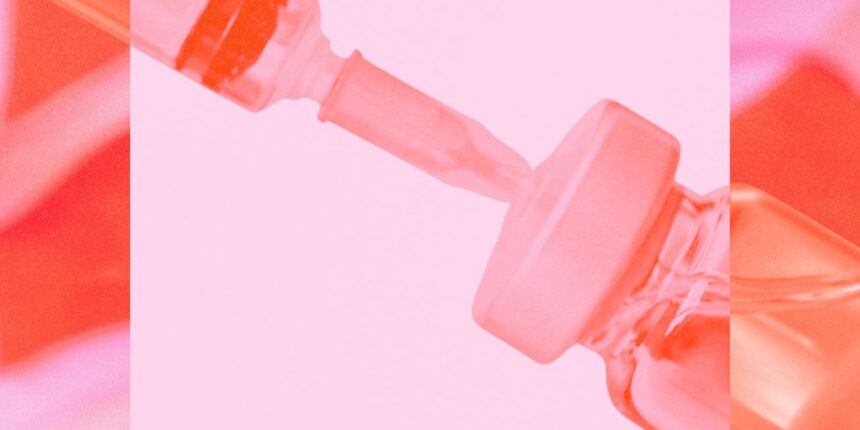Additionally, according to new research from the CDC, HPV is actually more common in men than women. However, there is still no testing available to confirm an infection in males—meaning, they can unknowingly spread it to a partner—which is why the HPV vaccine is now recommended for people of all genders.
How does the HPV vaccine work?
According to Wendy Wilcox, MD, an ob-gyn in New York City, the HPV vaccine protects against certain high-risk forms of HPV that are known to cause cancer. “When someone gets the HPV vaccine, they’re building up immunity, so their body will be immune if they ever encounter that high-risk type of HPV,” Dr. Wilcox tells SELF. Like most vaccines, the goal of this one is to give the immune system the tools it needs to fend off HPV should it ever encounter it in the future, preventing infection.
“This is why, ideally, we are targeting the pediatric population so that we’re getting them vaccinated before they have any sexual contact where they could be exposed to that high-risk type of HPV,” Dr. Wilcox says.
The vaccine is typically given in a series of two doses 6 to 12 months apart for kids or teenagers, and three doses over the course of six months for adults and people who are immunocompromised.
What exactly are the current HPV vaccination recommendations?
The HPV vaccine is recommended for boys and girls beginning at age nine, preferably between the ages of 11 and 12. It used to only be FDA-approved and therefore recommended up to age 26, though you can now get it up to age 45 if you and your healthcare provider determine that it could benefit you. Again, the CDC does not officially recommend it for folks over 26, but its approval means you can get it if your doctor suggests it—and there are a few reasons they may.
“I’m regularly recommending the vaccine for people of all ages, [but during childhood] is definitely the best time to do it, before you’re ever exposed,” Dr. Boon says. “That’ll give you the highest chance of not getting any abnormal cells.” But even if you have previously had a positive HPV test, the vaccine may still be worth getting because it can prevent future infections, particularly from different or higher-risk strains.
“You also may not know what your [future] social circumstances may be, and there might be more exposures as you get older and [possibly] have a relationship change,” Dr. Boon says. It’s never too late to try to do everything you can to prevent a virus that can potentially cause cancer, she says. And the fact that there is a vaccine that is so effective at preventing multiple types is amazing, she adds, “so I would recommend patients of all ages and genders complete the vaccine series as soon as they can.”
Mine was fortunately covered by my insurance, which made getting it even more of a no-brainer. Coverage may vary, though, by insurance plans if you’re on the older side, Dr. Boon notes.
The bottom line
Among the medical community, it’s widely known and understood that almost everyone will have an HPV infection at some point in their lives, possibly without ever even knowing it. The majority of the time, it’s completely harmless and the body fights it off. But because there is a chance certain strains of the virus could lead to cancer, both Drs. Boon and Wilcox advise doing everything you can to prevent it—especially since men can’t be tested.
Read the full article here



